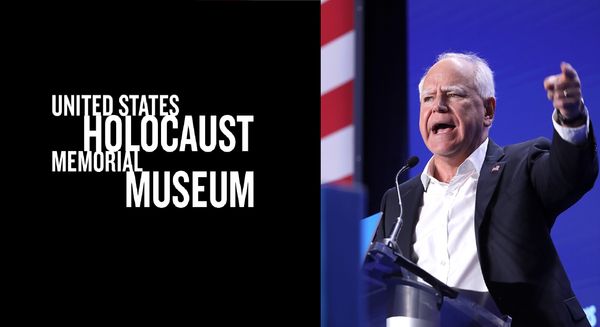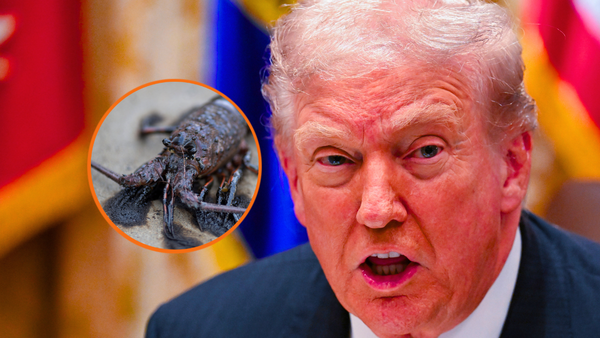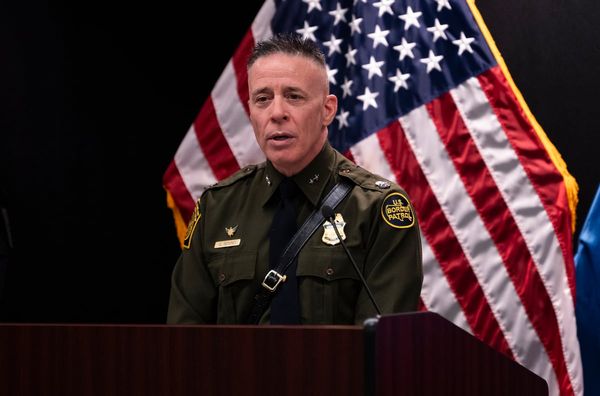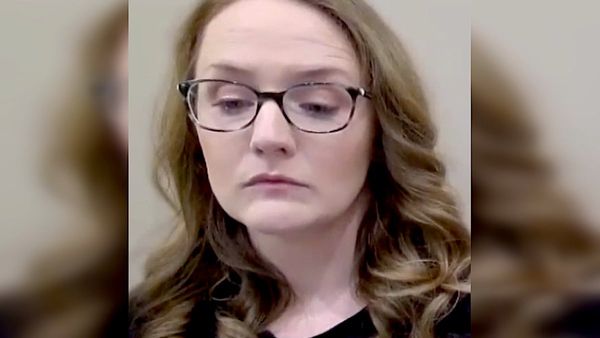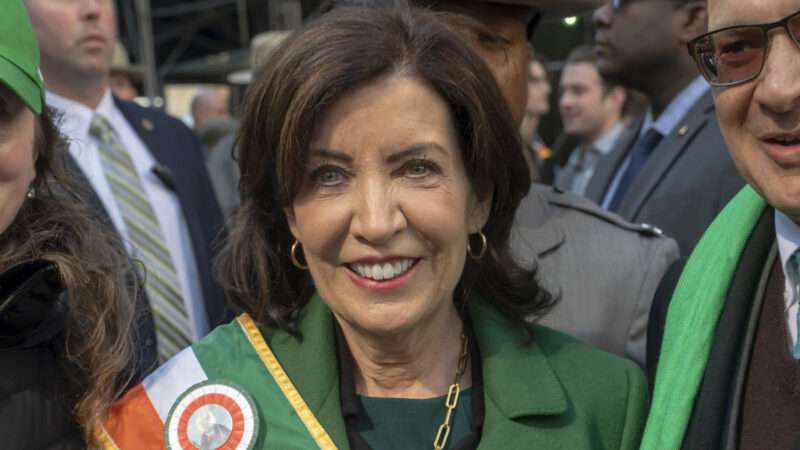
As of last June, more than two years after New York legalized recreational marijuana, just 12 state-licensed dispensaries had opened for business, falling far short of Gov. Kathy Hochul's prediction that more than 100 would be operating by that summer. Six months later, Hochul was bragging that "nearly 40 adult-use dispensaries will have opened in 2023." The current count is 87. Those stores, The New York Times notes, "are far outnumbered by more than 2,000 rogue head shops, the target of complaints that they siphon customers, sell to children and attract criminals."
New York's rollout of marijuana legalization has been a "disaster," as Hochul conceded in January. "Every other storefront" is an unlicensed pot shop, she told The Buffalo News. "It's insane."
That disaster has frustrated would-be retailers, left farmers in the lurch, played havoc with tax revenue projections, and made a joke out of any expectation that New York, by learning from the experience of states that legalized marijuana earlier, would do a better job of displacing the black market. The insanity that Hochul perceives is a product of bad decisions by politicians who should have known better and obstruction by regulators who sacrificed efficiency on the altar of diversity.
Unlike states such as New Jersey, where voters approved legalization in 2020, and Maryland, where a similar ballot initiative passed two years later, New York did not initially allow existing medical dispensaries to start serving the recreational market. Its slow and complicated licensing process, which was skewed by an "equity" program that prioritized approval of applicants with marijuana-related criminal records or their relatives, is maddeningly hard to navigate.
Those preferences invited lawsuits by people who were excluded, which further delayed approval of licenses. Guidance and financial help for people struggling to jump through the state's hoops never materialized. And as in other states, high taxes and burdensome regulations have made it hard for licensed businesses to compete with unauthorized dealers.
The Times story, which opens with the stark numerical contrast between those two categories of marijuana suppliers, later takes a stab at a more positive spin: "New York now has more licensed recreational dispensaries than any state on the East Coast except Massachusetts." But even that is not true.
Maine, where voters approved legalization in 2016, has 139 recreational dispensaries, serving a population less than a tenth as big as New York's. New Jersey, with a population less than half as big as New York's, has 101 recreational dispensaries two years after legal sales began.
Connecticut, which legalized recreational marijuana the same year as New York, has 28 dispensaries serving that market—nearly twice as many per capita. Maryland, which legalized marijuana in 2022, has 101 dispensaries that serve recreational consumers as well as patients. Maryland's population is less than one-third the size of New York's. Even tiny Rhode Island—which has a population one-twentieth as big as New York's, legalized marijuana a year later, and has just half a dozen recreational dispensaries—still has more per capita.
New York's population is almost three times as big as the population of Massachusetts, where legal recreational sales began in November 2018. Massachusetts has nearly 400 licensed dispensaries. That's roughly six authorized retailers per 100,000 residents, compared to about 0.4 per 100,000 in New York.
If you consider the situation in other regions of the country, New York's pitiful number of licensed dispensaries looks even worse. Colorado, where the first recreational outlets opened in 2014, now has 670, or about 11 per 100,000 residents. Oregon, where legal recreational sales began the same year, has more than 800 licensed outlets, about 19 per 100,000 Oregonians.
Both of those states, of course, had a jump on New York, approving legalization in 2012 and 2014, respectively. But New Mexico legalized recreational marijuana the same year as New York, and it has more than 1,000 dispensaries, serving a population one-tenth as big as New York's.
Any way you cut it, New York has done a terrible job of getting licensed dispensaries up and running. But the Times sees another silver lining: It notes that dispensary owners "include people with criminal convictions, veterans, women, nonprofits and people of Black, Latino and Asian descent."
The affirmative action that helped achieve that diversity is part of the problem. Among other things, New York mandated preferences for license applicants who suffered as a result of the crusade against cannabis. While that idea has a pleasing symmetry, it never made much sense as a way of making up for the harm inflicted by cannabis criminalization. And in practice, executing the plan has drastically limited the legal marijuana supply.
People with marijuana convictions certainly should not be excluded from participating in the newly legal market, a policy that would add insult to injury. But that does not mean they should have a legal advantage over cannabis entrepreneurs who were never arrested but might be better qualified.
The state arguably does owe something to people who were punished for engaging in a business it has now decided to legalize. But why should reparations take the form of marijuana license preferences, as opposed to, say, direct financial compensation for legal costs and lost liberty? The method New York has chosen is limited to people who are currently interested in selling cannabis, which illogically excludes many others who were injured by enforcement of the state's marijuana laws.
Hochul nevertheless is proud of New York's equity efforts, even as she complains about the state's agonizingly slow progress toward a legal market. "I'm very fed up with how long it's taken to get some of these approvals," she told The Buffalo News after New York's Cannabis Control Board canceled a meeting at which it was expected to approve new retail licenses. "My understanding is that the board was supposed to consider 400 applicants. They only had three new retail locations approved….My team got involved and [said], 'No, go back to the drawing board, work harder, get this done.' And no, I'm not satisfied with the pace."
Part of the solution, Hochul thinks, is cracking down on all those "rogue head shops," which is apt to inflict precisely the sort of injury that New York supposedly is trying to ameliorate, punishing entrepreneurs for filling the yawning gap left by the state's misguided policies and administrative incompetence. More promisingly, Hochul has ordered "a top-to-bottom review of the state's licensing bureaucracy," aiming to "shorten the time it takes to process applications and get businesses open."
The Times notes that license applicants "have filed lawsuits accusing the agency of overstepping its authority, giving conflicting guidance and discriminating against white men in its push for diversity." The rollout "has been delayed for months at a time by lawsuits, the state's monthslong rule-making process and the state's failure to provide the start-up loans and real estate that it promised to the first 150 dispensaries."
A recent scandal involving Damian Fagon, the New York Office of Cannabis Management's chief equity officer, reinforced the impression of dysfunction. Jenny Argie, who owns a company that supplied edibles to dispensaries, told the Times that Fagon "retaliated against her company, Jenny's Baked at Home, after New York Cannabis Insider published parts of a conversation with him about the state's failure to punish bad actors, which she had recorded." A month later, "her products were recalled—a first for the state—and her business has been temporarily shut down." Fagon has been placed on administrative leave pending the outcome of an investigation by the state inspector general's office.
Legalization activist Annette Fernandez defended Fagon in an interview with the Times. "Regardless of his hubris," she said, "he's still the No. 1 advocate for equity." But the equity program is itself an act of hubris, distorting the market by prioritizing progressive goals instead of awarding licenses to anyone with the wherewithal to run a successful marijuana business.
In addition to the bureaucratic shake-up, Hochul supports legislation that would substantially reduce the state's marijuana taxes. As should have been obvious to anyone who was paying attention to what happened in states such as California (which apparently did not include New York's legislators), taxes are a major factor in the ability of licensed marijuana businesses to compete with the black market, attract customers, and turn a profit.
New York collects a 13 percent retail tax on cannabis products, plus a tax based on their THC content: 3 cents per milligram in edibles, eight-tenths of a cent per milligram in concentrates, and half a cent per milligram in flower. That tax amounts to 30 cents for a gummy containing 10 milligrams of THC and $3 for a 100-milligram chocolate bar. And since it is collected from the distributor, its impact is compounded by the markup and tax at the retail level. Hochul favors replacing the THC tax with a 9 percent wholesale excise tax.
The THC tax is one of those ideas that appeal to progressive technocrats who give little thought to unintended consequences. The rationale was that it would help maintain revenue in the face of falling retail prices while deterring overconsumption by forcing consumers to pay more for products of higher potency. Legislators somehow did not take into account the existence of a black market in which the tax rate is zero. Given that reality, there is an unavoidable tradeoff between using taxes to raise revenue or paternalistically prod consumers and getting those consumers to patronize the businesses that actually collect the taxes.
Back in December 2022, Hochul unveiled a "licensed cannabis dispensary tool" that consumers could use to check a pot store's legal status. She urged shoppers to look for signs "posted in the windows of legally licensed retail dispensaries" that include a QR code to verify that a store is officially allowed to sell cannabis. She said the signs "will help to protect public health and strengthen our ability to deliver the equitable cannabis market our law envisions," and she promised to "shutdown illicit operators who are selling products that put New Yorkers at risk."
More than a year later, those "illicit operators" outnumber "legally licensed retail dispensaries" by about 23 to 1. Instead of trying to scare consumers about the hazards that might be lurking in black-market pot or urging them to do their civic duty by eschewing it, maybe New York politicians should remove the barriers that have fostered the embarrassing situation in which they find themselves.
The post Political Stupidity and Bureaucratic Bungling Created New York's Pot Legalization 'Disaster' appeared first on Reason.com.
